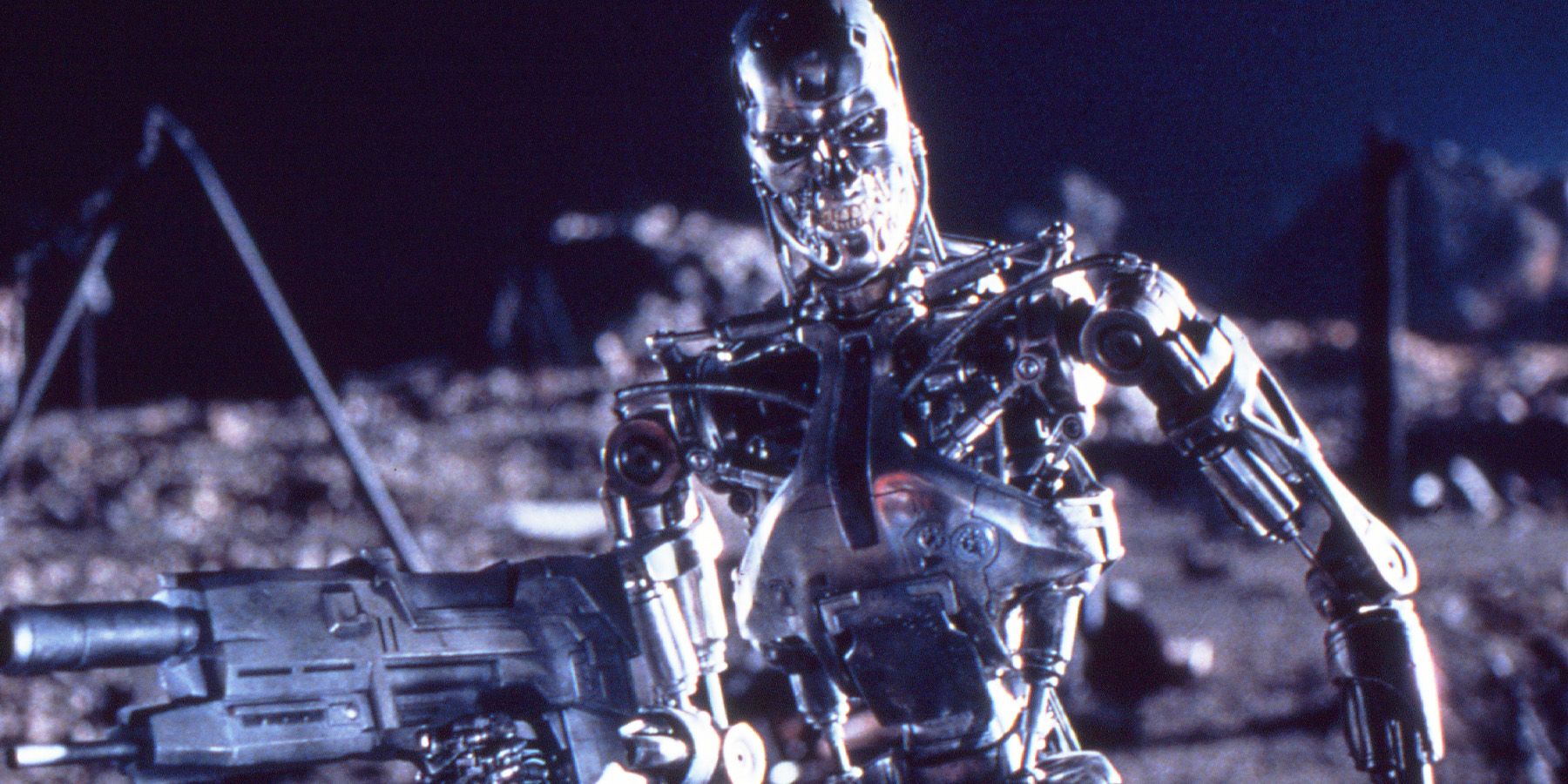The awful truth of franchise filmmaking is that not every great idea can support an endless series of profitable yearly cinematic outings. Just because something worked once, or even twice, doesn't mean studios can use its iconography to sure up their earnings for the next decade or two. Sometimes pushing a story beyond its bounds ruins what was once good about it.
The Terminator and T2: Judgement Day are great films that could lead an uninformed observer to believe that there's infinite possibility in those concepts. Repeated messy attempts to capitalize on their success have proven that claim false. The latest troublesome sequel came with some contentious thoughts from the director.
Terminator: Dark Fate is the latest entry in the long-running franchise, and it may be a wound that takes a long time to heal. Its sequel was canceled almost immediately, it fell short of its predecessor at the box office, and it received mixed-to-negative reviews. It's fair to say that it fails to live up to the quality of the first couple of films, but it's better than the films it followed. Director Tim Miller, late of Deadpool, has come out to discuss the film's disappointing outcome and has set much of the blame at his own feet. Studios taking the wrong lesson from box office failures is a time-honored tradition at this point, but as a filmmaker, Miller sees its failure as a lesson. Those who hold the rights to the franchise would do well to do the same.
While there was unquestionably some hate directed specifically at Dark Fate before its release, the film was starting the race with a limp thanks to the back-to-back disasters of its franchise. The film received plenty of pushback for daring to have more than one woman in it, as is so often the case with nerd media, but that vocal portion of the fanbase did little to kill the film. Dark Fate set itself the frankly absurd goal of acting as a sequel to the first and second Terminator films without acknowledging the other three or the two seasons of TV. James Cameron was one of the five credited writers, while modern reports suggest he took a more involved role in the film. Their goal, as it has always been, is to erase the memory of everything that didn't work and get back to the two movies people like. This is seen as a return to form, but it fails to understand what made the first films special.
Terminator: Genisys is a considerably weaker film than Dark Fate, but it made quite a bit more money. It's hard to argue quality when considering a film that was immediately rendered non-canon by its sequel. That feels like a pretty open show of acceptance of a film's narrative inadequacy. When it was being promoted, James Cameron was trotted out for the ads. Cameron didn't work on the film, but audiences who went to see Furious 7 or Mad Max: Fury Road probably heard the legendary director sing the mild praises of Genisys before their film. Cameron infamously stated "I start to see things I recognized", inadvertently summing up the entire problem with the franchise since 2003.
Going back to the narrative of T2 solves nothing. Declaring a film to be non-canon doesn't retroactively erase it from the real-world timeline. Everyone still saw those bad movies and lost whatever goodwill they once had for the franchise. Everyone still developed the sneaking suspicion that there were no good ideas left. The studio wants to go back to T2 because T2 made a lot of money and became an icon, so they just keep forcing good directors to put a limited spin on the same idea. When fans say they want the franchise to go back to what it used to be, they don't just mean they want the previous movies erased from the timeline. They want the simplicity and creative vision of the franchise's early days. The first two movies are good because the primary goal of the team behind their production was quality. The other films are bad because they put quality way behind tail-chasing continuity obsession and lazy financially focused callback-centric cinema. A return to form for the Terminator franchise would be a simple straightforward horror or action film built around high-concept science fiction and real human drama.
Arguably, the best way forward for the Terminator franchise would be to hire a team of complete newcomers and go through the films like an autopsy to piece together what's worth keeping. A good movie star, a good director, good writers, a good crew, and a good idea will make a good movie regardless of the title. The Terminator franchise deserves more than increasingly dull retreads of a film that everyone already knew was good 30 years ago. Either let new creatives find interesting new directions without the burden of continuity or let the franchise die the peaceful death it's been hoping for since the 2000s.



